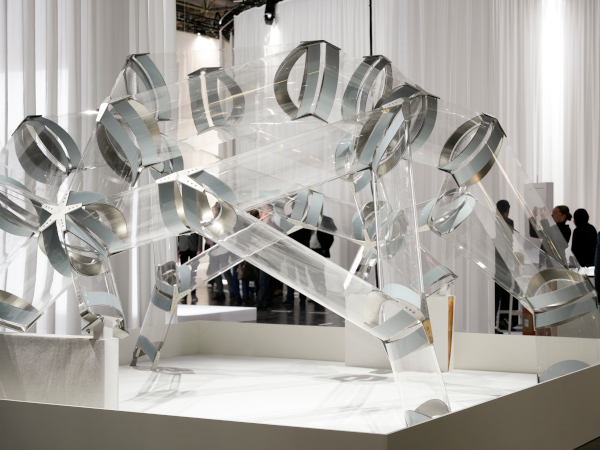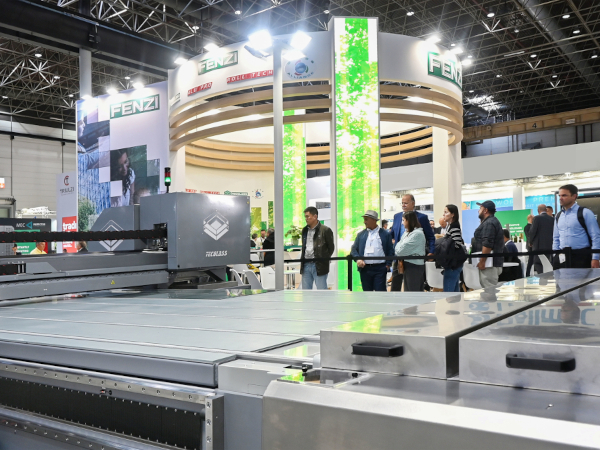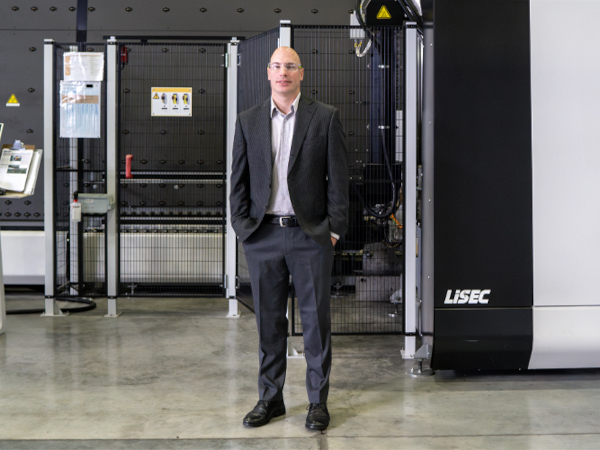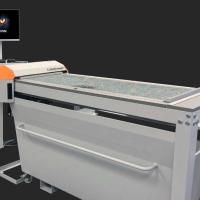Date: 4 December 2015
The technology group SCHOTT is one of the few companies in the world capable of manufacturing ultra-thin glasses that can be used in the cutting-edge features of mobile devices, substrates for flexible OLED displays and wearables, camera systems, micro batteries, processors, and fingerprint and bio-sensors.
By using innovative materials and its own proprietary down-draw technology, SCHOTT can reliably produce ultra-thin glasses measuring as slim as 25 microns. Ultra-thin glass offers many technical advantages over plastic or silicon in semiconductor applications, and advance the trend toward miniaturization by making exciting concepts possible in the race to develop the smartphone, wearable, and Internet of Things technologies of the future.
Flexible glass, thinner than a human hair, can be used in high-tech applications e.g. in the semiconductor and electronics industry. The technology group SCHOTT produces these ultra-thin glasses for a variety of functions in the smartphone of tomorrow. Photo. SCHOTT
Displays and wearables that can be bent or folded
SCHOTT’s D 263® T eco hardened ultra-thin glass is scratch resistant, and bendable up to a radius of a few millimeters without showing any signs of fatigue. Furthermore, it has excellent barrier properties and protects against environmental influences such as moisture, air, or other particles. These qualities make it an ideal substrate or encapsulant for OLEDs that can be used for bendable or foldable displays in wearables and curved screens.
Fingerprint recognition and smart cameras
Capacitive fingerprint sensors used to securely identify smartphone users are becoming increasingly important. To achieve the highest recognition accuracy, the sensors require covers as thin as possible, but incredibly strong. Because ultra-thin glass from SCHOTT has a uniquely high dielectric constant, the sensor signal is attenuated only very slightly on the way to the finger.
Thanks to their high optical quality, ultra-thin glasses can be used in smartphone cameras, either as chemically hardened cover glass or substrate for IR-cut filters for CMOS image sensors. SCHOTT is the only company that manufactures chemically hardened ultra-thin glass that offers four times higher strength than unhardened base glass.
In the smartphone of the future ultra-thin glass from SCHOTT can perform important functionalities: As hardened cover glass of the bendable OLED display, in the camera module or in the fingerprint sensor, as a substrate material for the thin-film battery or as a thermally stable component in the processor unit. Graphics: SCHOTT
From chip packaging to thin-film batteries
As an inorganic material, SCHOTT’s AF 32® ultra-thin glass is perfect for high-performance processors in smartphones. The material’s coefficient of thermal expansion is equivalent to silicon’s; ultra-thin glass has high dimensional stability over a wide temperature range and withstands increasing heat generation better than the plastics currently used in chip packaging. And, even the thinnest glass does not bend during use, making extremely flat device types possible.
Ultra-thin glass also represents a promising alternative to silicon as a substrate material for so called interposers and for distributing data streams between processors, memory chips, and other components. The high-frequency electrical properties of glass allow for data to be transported with lower electrical losses, enabling longer battery runtimes for smartphones. Laser-engineered ultra-thin glass can contribute to increases in data transfer rates by a factor of up to eight, making it the material of choice as a substrate for space-saving chip packaging.
Contributing directly to higher performance, micrometer-thin glass is an ideal substrate for novel thin-film batteries. These next-generation micro batteries supply electricity to even the smallest autonomous devices or sensors. Potential fields of application for thin batteries include wearables, cameras, and Internet of Things devices.
“Ultra-thin glass is the material of the future, opening the door to new capabilities and better connectivity of smartphones, wearables, and Internet of Things devices,” says Dr. Rüdiger Sprengard, Director of New Business for Ultra-Thin Glass at SCHOTT Advanced Optics. “It’s hard to imagine a piece of glass thinner than a human hair, but ultra-thin glass is just that, and its technical advantages make it a truly novel and special product that has many applications in the high-tech devices of the future.”
About SCHOTT
SCHOTT is a leading international technology group in the areas of specialty glass and glass-ceramics. The company has more than 130 years of outstanding development, materials, and technology expertise and offers a broad portfolio of high-quality products and intelligent solutions. SCHOTT is an innovative enabler for many industries, including the home appliance, pharmaceutical, electronics, optics, automotive, and aviation industries. SCHOTT strives to play an important part in everyone’s life and is committed to innovation and sustainable success. The group maintains a global presence with production sites and sales offices in 35 countries. With its workforce of approximately 15,400 employees, SCHOTT generated sales of $2.55 billion in fiscal year 2013/2014 us.schott.com









Add new comment